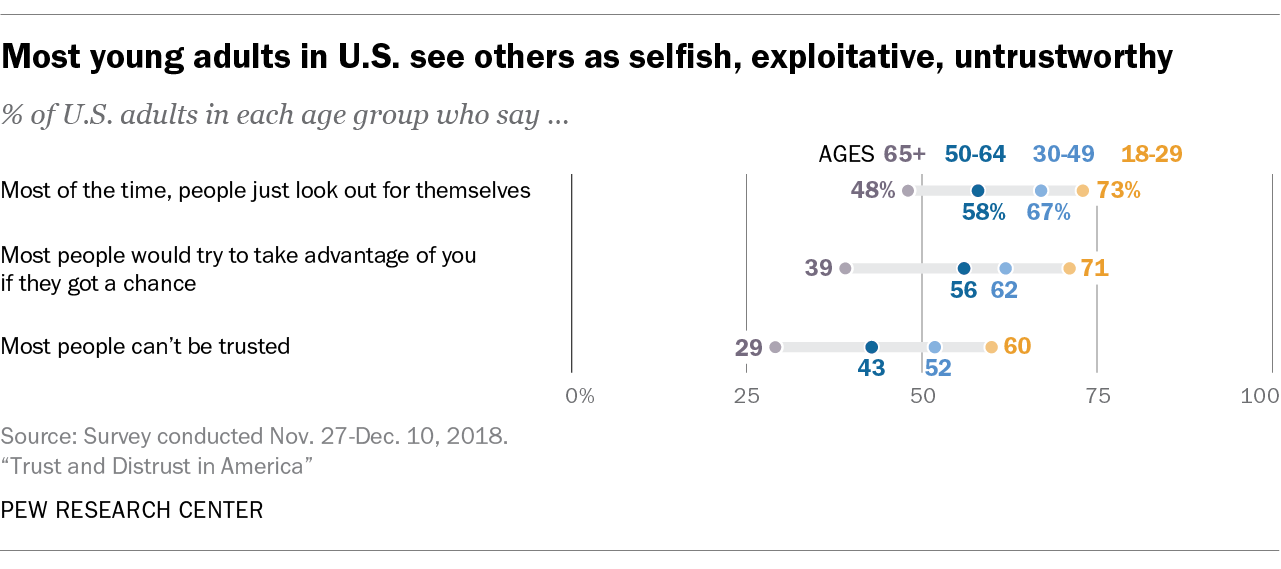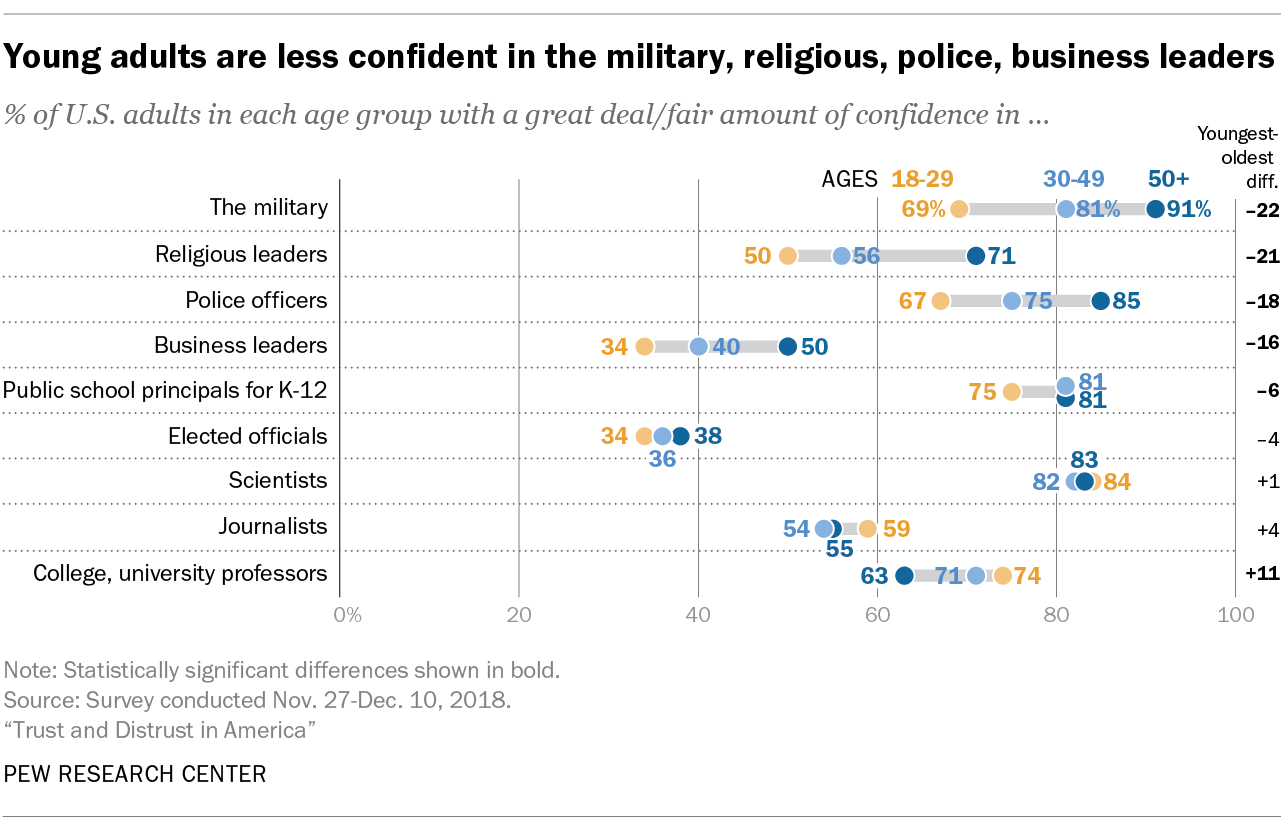Loyalty Is Dead: The Consequences Of A Low-Trust Society
Loyalty is buried. Has untrustworthiness become normal? In a low-trust society, everyone is out for themselves. You can no longer trust anyone.
Loyalty is dead, buried, and salt has been spread across its grave. Loyalty used to be rewarded decades ago. Today, there are no longer any incentives to be loyal to another person, company, or institution.
From A High Trust To A Low Trust Society
The United States was once a high-trust society in the early 1990s. The country's trust level was around 50%.
The level of trust in the United States has fallen, now in the 30% range. This shift is not just a statistic. The declining level of trust is a significant change in societal trends. The United States is now a low-trust society.

People no longer trust others. Employees no longer trust employers. There is no longer confidence in society's institutions.
Lack Of Interpersonal Trust
There's been a noticeable shift in trust dynamics among the general population. Younger people, in particular, view others as untrustworthy. This marks a significant departure from the past.
An impact of thinking that other people are selfish is that people will be less likely to want to find a community. If everyone is looking to exploit others, why spend time with others?
The lack of interpersonal trust doesn't just affect individuals. It also damages the fabric of neighborhoods. In a low-trust society, people are less likely to know their neighbors. It becomes more challenging to create close-knit communities.

The consequence of viewing everyone as inherently selfish is it creates a dog-eat-dog society. Each individual is only looking out for number one, themselves. If something is not in their self-interest or does not benefit them, there is no reason for them to do it.
The lack of trust leads to social isolation. People isolate themselves in their apartments or homes. They do not know anyone in their community or neighborhood. A low-trust society is one reason for the loneliness epidemic.
Death Of Company Loyalty
It used to be that you could work for a company for most of your working life and receive a retirement package. You could then retire and enjoy your golden years.
That concept is now long gone. Employers no longer expect loyal employees. And employees are no longer faithful to companies since they realize that times have changed.
Now, it is normal for a person to jump from employer to employer every few years. Even then, you may not receive a retirement package with your job.
The rise of freelancing and remote work has further eroded traditional company loyalty. Freelancing and contract work have introduced a new level of competition for workers. The increase in competition means workers must compromise on their wages to find and keep a job.
Employers are aware of the global talent pool. Companies can now hire workers at a lower cost. There is now no reason for an employer to provide benefits. This means that freelancers are not just competing locally or nationally. Remote workers are competing against a global workforce for the same positions.
The shift away from loyalty to employers has sparked an entrepreneurial spirit. It has forced many to start their own businesses. More people are now learning how to build an online business.
Loss Of Trust In Institutions
People's respect for institutions continues to decline. The Internet has made it easier for people to learn and find information. Information people could uncover using the Internet includes scandals, political donations, donations to other causes they may disagree with, and a lack of transparency.

The loss of confidence in institutions is evident across the board, from higher education to Congress. Loss of trust in institutions is especially apparent among young people.
The institutions with the most confidence are scientists, public school principals, and the military. The institutions with the lowest confidence are religious leaders, business leaders, and elected officials.
Consequences Of A Low-Trust Society
The consequences of a low-trust society are tense relationships, more laws and regulations, and distrust of people.
It strains personal relationships. People doubt their interactions with others. Verbal agreements are no longer valid. People no longer trust the words or agreements of others.
Every business deal, personal agreement, or even a simple promise must be legally documented in a society where trust is low. This increases paperwork, legal procedures, and individual costs for everyone. This creates more lawyers and expands the legal system.
In a low-trust society, the erosion of trust means that individuals, employees, and employers can no longer be relied upon to do the right thing. This results in more regulations for every possible danger or violation. As self-responsibility is no longer expected in society, responsibility shifts from the individual to the government to solve problems.
The growing distrust in the government's laws and regulations leads to skepticism about their true intent. People question the motives of politicians. People question the concept of the greater good.
Politicians are no longer seen as public servants. And the common good is a myth.
Everyone is only looking out for themselves.
Secure Single’s Algorithm recommends:
Summary
Loyalty is deceased. The result is a low-trust society where no one trusts each other, employers, and institutions. No one can be trusted. So you must look out for yourself, or someone will use you to their own ends.
Subscribe to Secure Single’s Substack for more content to chart your course toward confidence, happiness, and prosperity to thrive as a single person!
Order your copy of Thriving Solo: How to Flourish and Live Your Perfect Life (Without A Soulmate). It is now available in paperback and Kindle on Amazon.


